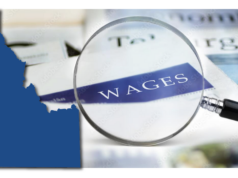As people approach retirement age, staying in their homes for as long as possible becomes a top priority. However, this can come with its own set of financial challenges. Fortunately, there are ways to prepare financially to ensure that retirees can stay in their homes longer. Here are eight financial tips for staying in your home after retirement.
Create a Budget
Creating a budget is an essential first step for anyone looking to manage their finances effectively, especially in retirement. A budget provides a detailed breakdown of an individual’s income and expenses, making it easier to understand how much money is coming in and going out each month. This understanding can be invaluable in helping retirees manage their finances effectively, as they are often on a fixed income.
One of the primary benefits of creating a budget is that it helps retirees plan for unexpected expenses. Unexpected expenses can be a significant source of stress for retirees, and they can quickly derail even the best-laid financial plans. By having a budget in place, retirees can set aside money for emergencies and other unexpected expenses, ensuring they are financially prepared for any surprises that may come their way.

Another benefit of creating a budget is that it can help retirees identify areas where they can cut back on expenses. Retirees are often looking for ways to stretch their retirement income, and a budget can help them achieve this goal. By tracking their expenses carefully, retirees can identify areas where they may be overspending or wasting money, and take steps to reduce their expenses accordingly.
For example, a retiree may realize that they are spending too much money on dining out or entertainment. By cutting back on these expenses and reallocating those funds towards other areas of their budget, such as healthcare or home maintenance, they can stretch their retirement income further.
Pay Off Debts
Paying off debts before retirement is an important financial goal for many retirees. Debt payments can eat into retirement income and make it harder to afford necessary expenses, such as healthcare or home maintenance. Therefore, it is essential to pay off as much debt as possible before retiring, as this can help retirees save money in the long run.
Credit card debt can be especially harmful to retirees, as the high-interest rates can quickly accumulate and eat away at their retirement savings. To avoid this, retirees should prioritize paying off their credit card debt as soon as possible. This can be achieved by creating a budget, tracking expenses, and finding ways to reduce unnecessary expenses.
Car loans can also be a significant expense for retirees, especially if they are still making payments on a new or relatively new car. Paying off the car loan before retirement can help retirees save money in the long run, as they will no longer have to make monthly payments on the loan. Retirees can consider selling their car and downsizing to a less expensive vehicle or paying off the loan in full if they have the means to do so.
Consider a Reverse Mortgage

A reverse mortgage is a type of home loan that has become an increasingly popular option for retirees looking to access equity in their homes. With a reverse mortgage, homeowners can borrow against the equity in their homes and receive payments from the lender. Unlike a traditional mortgage, the loan does not have to be paid back until the homeowner sells the home or passes away.
Reverse mortgages can be an excellent financial tool for retirees looking to stay in their homes longer. By accessing the equity in their homes, retirees can receive a steady stream of income that can help them cover their expenses in retirement. This can be especially beneficial for retirees who have limited income sources or who are struggling to make ends meet.
A reverse mortgage can be extremely beneficial because it provides financial assistance without requiring the homeowner to sell their home. This can be especially important for retirees who want to stay in their homes but need financial assistance to do so. By borrowing against the equity in their homes, retirees can access the funds they need to make necessary home repairs, pay for healthcare expenses, or cover other essential expenses.
A reverse mortgage can provide retirees with a source of income that is not subject to taxes. This can be especially beneficial for retirees who are concerned about the tax implications of their retirement income sources. With a reverse mortgage, the income is considered a loan and is not subject to taxes, making it a tax-efficient way to access the equity in a home.
Look for Tax Benefits

Retirees who want to stay in their homes longer can take advantage of various tax benefits to help them save money. One of the primary benefits of tax deductions is that they can reduce taxable income, which can lower the amount of taxes retirees owe to the government. This can be especially important for retirees who are living on a fixed income and want to maximize their retirement savings.
One tax benefit that retirees can take advantage of is the deduction for medical expenses. Retirees who have significant medical expenses may be able to deduct these expenses from their taxable income. This can include expenses related to healthcare, such as doctor’s visits, prescription drugs, and long-term care. The IRS allows retirees to deduct medical expenses that exceed 7.5% of their adjusted gross income (AGI), which can be a significant savings for many retirees.
Another tax benefit that retirees can take advantage of is the deduction for property taxes. Retirees who own their homes can deduct the property taxes they pay on their tax returns. This can be a significant savings for retirees who live in states with high property tax rates. It is important to note that the deduction for property taxes is subject to certain limitations and restrictions, so retirees should consult with a tax professional to ensure they are taking advantage of all available tax benefits.
Retirees who are charitably inclined can also take advantage of tax deductions for charitable contributions. Donations to qualified charitable organizations can be deducted from taxable income, which can lower the amount of taxes retirees owe to the government. This can be an excellent way for retirees to support their favorite charities and causes while also reducing their tax liability.
Downsize
Downsizing is a popular strategy for retirees who want to stay in their homes longer and reduce their expenses. By moving to a smaller home or condo, retirees can save money on housing costs and free up cash to use for other expenses. For a lot of older individuals moving to a retirement community or nursing home provides them with the comforts of home without dealing with the costs and responsibilities of owning their own.
Retirees who downsize to a smaller home or condo may be able to pay off their mortgage faster or qualify for a lower monthly mortgage payment. This can be a significant savings for retirees who are living on a fixed income and want to maximize their retirement savings.
In addition to reducing mortgage payments, downsizing can also help retirees save money on property taxes. Property taxes are often based on the value of the home, so downsizing to a smaller home or condo can result in lower property tax bills. This can be a significant savings for retirees who live in states with high property tax rates.
Another benefit of downsizing is that it can reduce utility bills. Smaller homes and condos require less energy to heat and cool, which can result in lower utility bills. This can be especially important for retirees who live in areas with extreme temperatures and want to keep their energy costs under control.
Following these four tips is a great way to start managing financial concerns as retirement approaches. If done correctly they may assist retirees in maintaining their homes and their freedom throughout the golden years.
Jennifer Bell is a long time practitioner of budgeting, and enjoys helping others find financial wellness. She writes for Retirement Communities in New Jersey.











